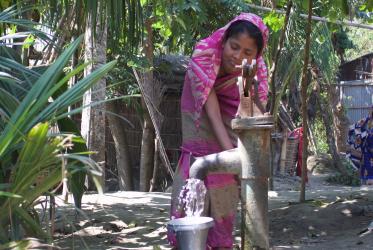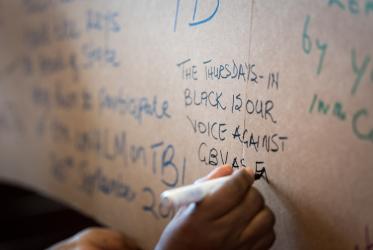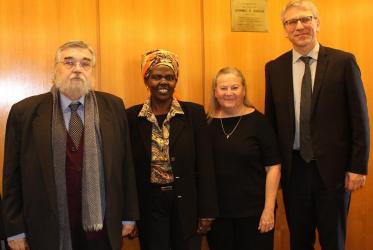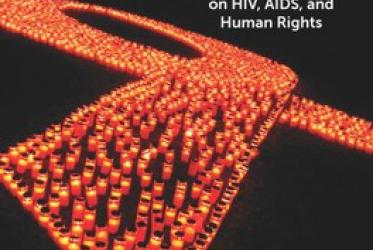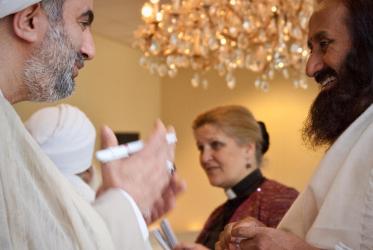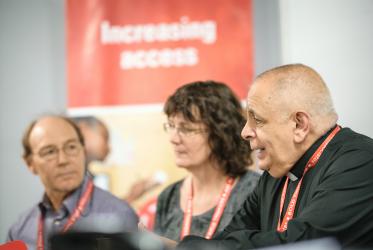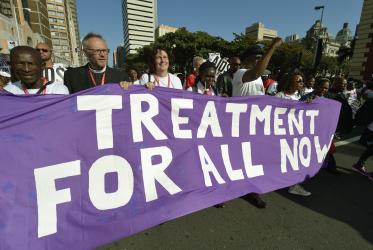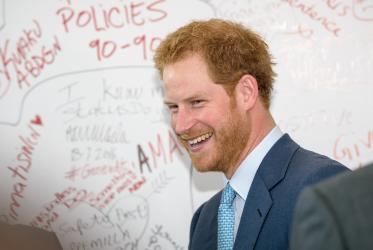Displaying 1 - 20 of 37
WCC Eco-School 2021 for Pacific region on Water, Food and Climate Justice
22 - 28 February 2021
WCC to ring with children’s voices across the world
16 November 2018
Churches are vital to renewed focus on gender violence, says WCC
07 November 2018
#WCC70: A prayer about health and healing
20 July 2018
WCC book featured in UN discussion on gender, religions and health
16 September 2016
Star power shines light on AIDS epidemic
21 July 2016
Children are being let down over HIV care
17 July 2016
AIDS 2016: “Stigma kills more people than HIV”
17 July 2016


